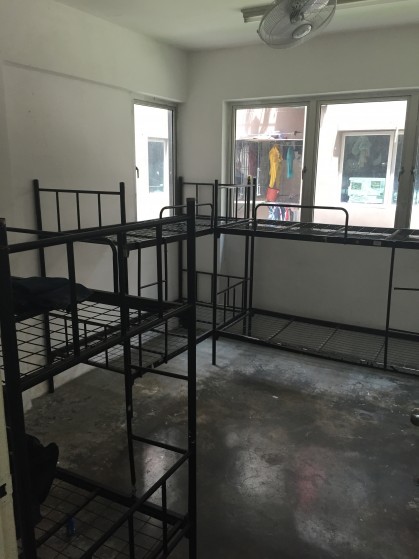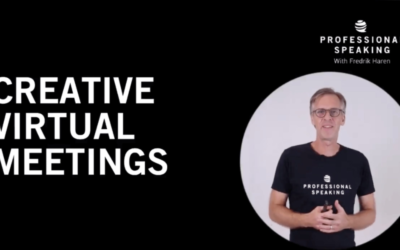Singapore.

An easy way to become a good speaker is to ask conference organisers what they hate about speakers – and then avoid doing that.
One thing that they do not like is speakers who “fly in for the speech”, as in those who show up at the conference just before their speech is about to begin, or who are at the conference on time, but do not attend the sessions.
It might sound obvious but you will be surprised how many speakers do not listen to the sessions before their own speech.
There might be many reasons for why they are not doing that.
For example:
– They are nervous so they can not make themselves sit in the room just before they are to go up and speak;
– They need some time off to focus before they go up on stage;
– The are just not interested in what the other speakers are talking about;
– They have other, they think, more important things to do.
Personally, I try to make an effort to attend as much of a conference as I can, and I do not sit in front of the room on the VIP seats. I sit at the back of the room so that I more easily can get a feel for the audience.
I do this for three reasons:
1) When you sit and listen to another speaker address the same group you are soon going to speak to, you get insights on how the group behaves. Do they seem to like jokes? Are they a tough crowd? etc.
2) You learn a lot of interesting things. There are only a few places which are better than conferences if you want to keep up with the latest trends. So, why not use this opportunity to learn?
3) THE MOST IMPORTANT REASON: By listening to the previous speakers, you can play on what the audience has already heard. It makes the audience connect with you because they feel you are “on the same page”. It also stops you from making a fool of yourself by, for example, using the same example as a previous speaker, or contradicting a previous speaker without knowing that you are.
So let me give you an example of how this worked out for me today.
I was invited by Straits Times (the largest newspaper in Singapore) to be on a panel at a conference they had organised for foreign journalists. The theme of the conference was “Foreign Workers in Singapore”, and I had been selected as one of the “foreign professionals” who had chosen Singapore as their new home.
I was to speak at 3 p.m. but the program already started at 9:30 a.m. The first part of the program was about migrant workers and the group even went and visited a dorm where 8600 (!) foreign workers from India and Bangladesh live.
I took the opportunity to join the whole program to learn about parts of Singapore that you normally never get to know so much about. (The picture above is from one of the rooms in this huge dorm that we visited.)
I got to know things like how:
- Male foreign workers get to pay much more to go and work in Singapore than females do. They pay up to 10 000 dollars just to get into the country and start working. This means that they work, on average, 17 months just to pay off the debt they incurred to get into Singapore.
- Only about 20% of the foreign workers from Bangladesh come home financially better off than when they left their home country.
- About 40% of all domestic helpers in Singapore do not even get one day off per week even though there is now a law in Singapore stating that they have this right.
Sad statistics in so many ways.
And that information was very important for me to hear as we were later going to discuss why highly paid experts like me decided to move to Singapore.
Because I had heard the earlier discussions about the situation of these hard working, low paying workers, I could, in my panel presentation, make a connection between this problem and the challenges Singapore faces in terms of income differences. (Something that was, for sure, in the minds of the journalists in the room at that time.)
By spending the whole day at this conference (while only speaking for a few minutes at the very end), it not only made me feel better prepared for my speech, it also gave me so much valuable insights about Singapore, and knowledge and insights that would have been very difficult for me to get had I not gone to this conference.
It’s a huge privilege to be invited to speak at conferences.
But do not let this privilege stop you from enjoying the BIG OPPORTUNITY that comes with it: listening to the other speakers.
Do that. You will learn more. And you will also become a better speaker.
Lesson: Professional speakers get paid a lot of money to speak for one hour. But that fee is not just for the hour you speak. It is for the preparations, the travel, AND for you to get last minute updates about the audience by spending time with them before your speech.
P.S.
So how about after the speech? I try to hang around until the next break so that the audience can come up and ask questions or give feedback. It’s a nice thing to do — and a great way to get business cards for follow up business! But staying after the speech is, in my opinion, not nearly as important as being there before your speech.
(Suggestion: Submit your email address in the form to the right to get a convenient email summary in your inbox every time 10 new posts have been posted.)




